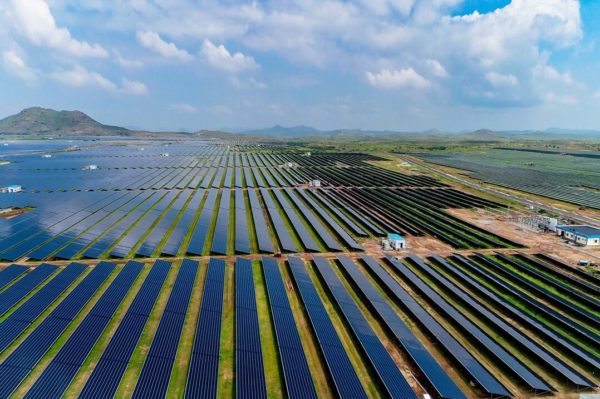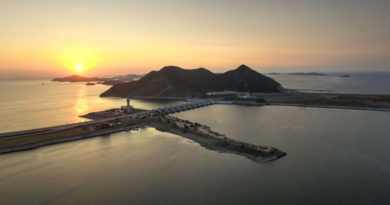APTEL Order Against AP Discoms Underscores Damage Done to Renewable Sector
 Not one, many PPA's beckon
Not one, many PPA's beckon
Adding politics to established policy is not recommended, and the consequences, when that is done, were there for all to see after the APTEL order yesterday (February 27). The case was a much followed one, of the Andhra Pradesh Discoms essentially, versus both the NTPC, as well as three of the key bid winners of the solar auction for Ananthapuramu and Kadapa solar parks. At stake was the future of some of the largest solar contracts in the state, totaling up to over 750 MW, and shared between Ayana Solar, SB Energy, and Sprng Energy. Quite simply, the story is this. After winning the bids, all three developers, entered into relevant PPA’s with NTPC, the nodal agency in this case, at the winning tariffs of Rs 2.72. As is usual practice, NTPC in turn, entered into back to back Power Sales Agreements with various AP discoms, who would purchase the power generated by the developers and sold to NTPC.
As always, a trading margin of Rs 0.07 per unit would be payable to NTPC. By 04.06.2018, a PPA between the developers and NTPC, and PSA between the state discoms and NTPC was duly signed. All good and proper, one would have imagined. But then politics happened.
On May 30, 2019, the Jagan Mohan Reddy led YSR congress rode to power in the state. Among other accusations during the campaign trail, Reddy had accused the state agencies of buying renewable power at highly ‘inflated’ costs. Thus it was, that the state government began questioning and placing pressure on discom chiefs to renegotiate. Despite advice to the contrary, on not interfering with agreements that had been entered into by following central guidelines, the above projects did get roped in, with the result that was finally laid to rest by APTEL yesterday. Some of the quotes below from the APTEL order will make clear exactly what the learned members of the bench there felt about the shenanigans in Andhra, something that has unfortunately also hurt the reputation of the state regulator, APERC.
“If tariff is discovered in a Bidding Route under Section 63 of the Act, the appropriate Commission is required to adopt the tariff discovered and applicability of Section 86 (1) (b) is limited to consider the merits of the case vis-à-vis the guidelines.” This was the not so gentle rebuke to the state regulator on the legality, and wisdom of allowing public hearings on a tariff order that had been arrived at after a clear bidding process, and hence did not call for the same, in law or spirit.
“Therefore, it is clear that the general regulatory powers which could be exercised by the State Commission comes into picture only if in a given situation, there are no guidelines framed at all or where the guidelines do not provide a procedure to deal with. Therefore, in the light of the guidelines prescribed by MoP for a specific procedure to be followed in the procurement of solar power in question, there was no scope for the State Commission to hold public hearing calling up for objections/suggestions from public. The only requirement of the Statement Commission in such situation would be to see whether the bidding process initiated was in accordance with MoP guidelines and whether it was complied with strictly adhering to MoP guidelines.”
On the amazing contention of AP discoms, that the appeal by the developers was liable to be rejected because now, they simply wouldn’t be able to establish the project on time, without admitting that they themselves were to blme due to the extra conditions they added to the most critical part of the transaction, the PSA’s. This appeal was summarily dismissed.
“Once the process of procurement of power and adoption of tariff is subjected to conditions, as stated above in the impugned order dated 05.10.2019, the parties whose interest and rights are prejudiced with the impugned order become aggrieved person.
Therefore, the Appeals filed by the Appellants are maintainable, since with the impugned order, there is no finality to adoption of tariff. This stand of the Appellants is further strengthened by the fact that lenders of the Appellants also expressed that there is no finality to tariff adoption.”
It didn’t end there. Among other things, the AP discoms also used the stand of public hearings to claim that even the trading margin of 7 paise payable to NTPC, needed to be 2 Paise. Just like that. And just like that, this claim too was shot down, with the bench reminding the discoms that their inital agreement with the state agency had been signed for 7 paise, and at no time did they express any reservations on that. Not just that, 7 paise is a well established figure, arrived at after due study, and both SECI and NTPC have been charging it everywhere. If that wasn’t enough, there was this stark reminder to the discoms.
“In fact, in case of 1000 MW Gani, Kurnool Solar Pak, though APDISCOMs have delayed the payments for more than 6 months, M/s NTPC made payments to solar power developers on its own ensuring uninterrupted power supply from solar power developers. That apart, if delay is caused on account of lapses on the part of the AP Discoms, they cannot take advantage of their own mistakes.
On fact, once a party enters into an agreement with the other party with clear understanding of terms and conditions, they cannot take advantage of some terms and conditions of the same contract and challenge or retract/repudiate other terms and conditions of the same contract. This is well settled principle.”
One hopes that with this well reasoned order of APTEL, better sense will prevail with the relevant powers at Andhra Pradesh, and the state will finally proceed with these bids and their logical end. Considering the fact that all the developers involved here are foreign firms, bringing in FDI (Foreign Direct Investment) after competing fairly in an open auction and reverse bidding process, it is a tragedy that things had to come to such a pass. We have not even covered the bench’s sobering comments on the claim of the AP discoms that the power tariffs, after the delay should be RS 2.44 or what prevails now. Because quite frankly, these are the sort of cases where they should be thankful that the bench has to stick to parliamentary language. Quite frankly, they deserved much worse for letting down all principles of doing business, in Andhra, as well as for the sector in India, in their handling of these agreements.
By Arrangement With SaurEnergy.com




